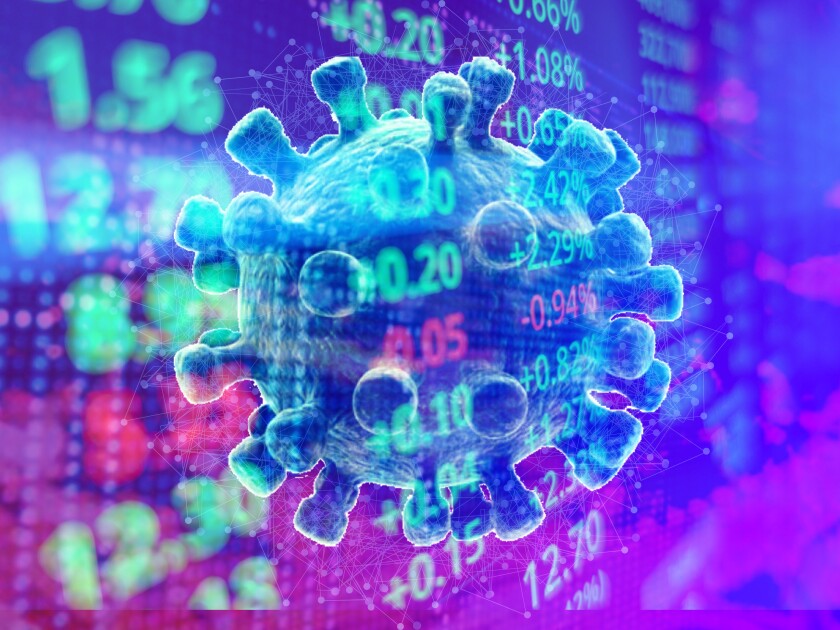In 2023, life sciences companies face challenges due to a tightened regulatory environment. To stay ahead of the game, companies must identify appropriate tax strategies to stand out and maintain their competitiveness.
KPMG China explained these strategies in a webinar hosted by ITR on November 30. The authors of this article discussed the latest developments in China’s tax landscape and what areas life sciences companies with operations in the country should be focusing on.
This article will summarise several critical developments affecting life sciences companies in China and present recommendations as to how to respond to them.
1. Anti-corruption campaign in the medical and healthcare sector
In 2023, China’s National Health Commission and National Medical Insurance Bureau initiated an anti-corruption campaign calling for an in-depth centralised rectification of corruption issues in the medical and healthcare sector. The government aims to further advance China’s healthcare reform by breaking the corruption chain and ousting unscrupulous players, and thus not only make healthcare more affordable in China but also pave the way for future overhauls in health insurance payment methods and doctors’ compensation.
For companies in the medical and healthcare sector, investigations under the campaign mainly focus on:
Compliance during the product commercialisation processes;
The occurrence of expenses;
The effectiveness of internal control;
Related-party transactions; and
Whether the transaction is carried out in line with market value.
Following these investigations, KPMG China has also observed tax inspections in the same area. Compared to previous tax inspections, with the launch of phase IV of the Golden Tax System (Golden Tax System Phase IV), the tax authorities are leveraging technology to gain more insight into selling expenses of pharmaceutical/medical device companies from the data collected via final invoices.
Summarised below are the key focuses of tax investigations based on KPMG China’s observations on recent tax audits.
1. Non-compliant expenses without substantive supporting documents | ||
Issue | Details | PRC tax considerations |
1.1 Selling expenses of an abnormally large amount and meeting expenses without substantive supporting documents | The selling expenses and meeting expenses recorded in the accounting book of pharmaceutical/medical device companies can only be supported by the contract and invoice without any further substantive documents (for example, on-site picture, attendance report) to support the occurrence of the event. | If the event did not actually occur, the tax consequences would include: • Corporate income tax (CIT) is not deductible; and • Input VAT is not creditable. On top of that, if the transaction involves the issuance of VAT special invoices without an underlying transaction, criminal risk would also need to be assessed. |
1.2 Expensive gift delivered to doctors for free | Some pharmaceutical/medical companies delivered promotional aids beyond companies’ compliance standards (for example, iPhones, iPads) to healthcare professionals (HCPs) for free at HCP conferences/seminars. | • The companies shall withhold the individual income tax (IIT) at 20% on gifts on behalf of the individuals; • CIT is not deductible; and • Input VAT not creditable; |
2. Compliant expenses with insufficient supporting documents | ||
Issue | Details | Chinese tax considerations |
2.1 Speaker fee | Some pharmaceutical/medical device companies engaged doctors to deliver speeches at, or attend, medical conferences. In return for the service provided, companies paid them service fees. However, in practice, it is difficult to obtain a VAT invoice from the HCPs. | • The doctors would be subject to VAT at 3% and IIT under the category of labour service on the speaker fees received. The company does not have a withholding obligation for the VAT. • IIT shall be withheld by the company. • A practical difficulty in obtaining the VAT invoice has led to uncertainty in the CIT deduction of the speaker’s fee. |
2.2 Inappropriate classification of grant, and hospitality and meeting expenses | During the commercialisation process, pharmaceutical/medical companies would incur various expenses, including grants, and hospitality and meeting expenses. Some companies treated all these expenses as meeting expenses and deducted in full the amount for CIT purposes. | The deduction limit for CIT purposes for grants, and hospitality and meeting expenses are different, with the details below: • Grant – not deductible; • Charitable donation – 12% of the profit before tax; • Hospitality expenses – 60% of the total hospitality fee and 0.05% of the total revenue; and • Meeting expenses – in full. Relevant supporting documents need to be put in place and a standard operating process (SOP) needs to be established to substantiate the CIT deduction position taken. |
2.3 Promotional aids delivered to an HCP for free | Some pharmaceutical/medical device companies delivered promotional aids to HCPs for free at medical conferences. | • VAT and CIT deemed sales. • IIT at 20% on gifts on behalf of the HCP, though not strictly enforced in practice. Relevant risk mitigation strategies need to be put in place if IIT is not withheld by the company. |
Recommendation
Whether in the current anti-corruption campaign or in the future business growth stage, companies should take action to control tax risks, with an aim of strengthening their capacity to mitigate tax risks while balancing tax efficiencies. It is recommended that pharmaceutical/medical device companies:
Conduct comprehensive tax health checks on a regular basis;
Self-inspect on related expenses, especially derived from commercialisation processes;
Identify relevant tax risks; and
Improve their compliance status.
For non-compliant expenses without substantive supporting documents, it is suggested that companies supplementarily declare and make up the related underpaid taxes in the form of self-inspection during a tax health check to reduce the risks of administrative penalties, which will be charged at 50% to five times of the underpaid tax.
For meeting expenses that are actually incurred but lack supporting materials due to reasons such as poor internal management, companies should contact the organisers and participants to obtain, or supplement, corresponding materials as the supportive evidence. Relevant SOPs should also be established to differentiate the tax treatment of grants, donations, hospitality expenses, and meeting expenses.
Last but not least, pharmaceutical/medical device companies should also establish and improve their internal management and tax compliance SOPs to achieve healthy and sustainable development.
2. VAT legislation and its impact on pharmaceutical/medical device companies
On December 27 2022, a draft version of the VAT Law of the People's Republic of China (the Draft) was submitted for first review at the 38th meeting of the 13th National People's Congress Standing Committee. Overall, the Draft imports most of the current VAT rules, aiming to provide a stable policy environment. However, the Draft takes a significant step forward in adopting the OECD International VAT/GST Guidelines, particularly in defining "taxable transactions occurring within the country" using the term "consumption within the country" and allowing for VAT credit refunds.
In addition, there have been significant changes compared to the prevailing VAT regulation in areas such as:
Simplified calculation methods;
Deemed sales;
Non-deductible input tax; and
Mixed sales.
An updated version was submitted for a second review in August 2023.
Summarised below is a high-level outline of the changes under the Draft, and the potential impacts on pharmaceutical/medical device companies.
Topic | Prevailing VAT regulation | Proposed changes | Impact on pharmaceutical/medical device companies |
1. Deemed taxable transactions The inclusion of “goods used for public welfare purpose” | Deemed sales include consignment sales, transfers of goods among branches across provinces for sale, capital injections, distributions in kind to shareholders, use for collective welfare or personal consumption, free-of-charge gifts, free-of-charge transfers of intangible assets or real estate, and free-of-charge provision of services. | The scope of deemed taxable transactions in the Draft has been narrowed compared to the current VAT regulations. In addition, ‘deemed taxable transaction’ under the Draft does not exclude circumstances that occur "for public welfare purposes", which was excluded in the earlier consultation paper. | Whether the compassionate use of drugs would be reported for deemed sales for VAT purposes has been contentious in the market. The current inclusion of goods delivered for public welfare purposes may have a potential VAT impact on pharmaceutical companies. |
2. Definition of input tax In connection with a taxable transaction | Input tax is the amount of VAT paid or borne by a taxpayer on the purchase of goods, processing, repair and maintenance services, services, intangible assets, or immovable properties. | Input tax is defined in the Draft as the amount of VAT paid or borne by a taxpayer on the purchase of goods, services, intangible assets, or immovable property in connection with a taxable transaction. | For pharmaceutical/medical device companies set up in a bonded area (an area where there are special trade terms or policies), the income of sales of goods within the bonded area is non-taxable for VAT purposes. The Draft gives clear guidance that the corresponding input VAT cannot be creditable for the non-VATable transaction. Companies need to assess the potential VAT impact. |
3. Non-creditable input taxes Creditability of input VAT regarding hospitality services | Input VAT on the purchase of loan services, food and beverage services, residential daily services, and hospitality services cannot be credited against output VAT. | The Draft adopts the position in terms of restricting the non-creditability of input VAT regarding hospitality services to those "purchased and directly used for consumption". | It could be good news for life sciences companies. The relevant SOP should be updated to make sure a special VAT invoice can be obtained and it is related to a taxable business to secure an input VAT credit for hospitality services. |
Recommendation
Upon completion of the consultation phase, legislators will undertake a comprehensive evaluation of the insights and suggestions gathered from the public. Drawing on past experience of tax reforms, it is expected that the subsequent reviews of the law would be carried out in the near future so that the law can be passed soon.
In light of the above, it is recommended that enterprises:
Remain vigilant of the legislative developments;
Evaluate the impact of the VAT law change on the business; and
Escalate feedback to the Ministry of Finance where necessary.
3. Fully digitalised electronic invoices
The fully digitalised e-invoice programme (the Digital E-invoice Programme) was launched in December 2021, as a pivotal aspect of the “Opinions on Further Deepening the Reform of Tax Collection and Administration” blueprint and a core pillar in the construction of an intelligent tax collection and administration system for Chinese tax authorities.
By the end of August 2022, the Digital E-invoice Programme, the pilot work of digital e-invoice collection, had been expanded to a nationwide scale, and the pilot work of digital e-invoice issuance has achieved nationwide coverage at the provincial level, except for Tibet, by November 2023, which means that the promotion of digital and electronic invoices has made significant progress at the two-year milestone.
The following are some of the notable changes following the introduction of digital e-invoices:
Different management methods – compared to the previous electronic invoices issued by the VAT invoice management system (Paper E-invoices), digital e-invoicing allows taxpayers to issue VAT invoices without using special tax control equipment or applying for approval of the type and quota of VAT invoices.
Dynamic credit limits applied – total amount management of invoicing per calendar month has been implemented, while the management mode of the limited number of points claimed and a maximum invoicing limit has been abolished, which can be dynamically adjusted according to the taxpayer's degree of risk, tax credit level, actual business situation, and other factors.
Different delivery methods – after the digital e-invoice is issued, the invoice data file is automatically sent to the digital tax accounts of the invoicing party and the invoiced party, which facilitates the delivery of the invoice to the account and reduces manual receipt and dispatch. Meanwhile, taxpayers can rely on the digital tax account to automatically collect and file the full amount of invoice data, making use of invoice data more efficiently and conveniently.
It is expected that there will be a long transition period for the promotion of digital e-invoices, during which the tax-related management processes of enterprises face various problems and challenges, such as the following.
Increased requirements for compliance management of invoices
The launch of Golden Tax System Phase IV, elaborated on in the following section, requires enterprises to monitor and self-examine their compliance management. The level of invoice compliance management will affect the tax credit rating of enterprises.
Increased complexity of processes and systems in the invoices collection section
During the transition period, there are many types of invoices, and the invoice collection section needs to design corresponding processes and systems for checking, auditing, accounting, and filing for different types of invoices. Invoice management needs to meet the requirements of full verification for compliance management, and needs to consider factors such as supplier co-operation and employee experience.
Policy promotion efforts vary greatly from place to place
The policy requirements in different regions are still changing, and there are differences in the implementation and progress, such as the single-track system and the purchase of Paper E-invoices in different regions.
Continuous upgrading of the invoicing system
The invoicing system has been upgraded to cope with the new requirements of the single-track system, total amount management, and other new requirements for digital invoices.
The system is constantly being upgraded at the tax bureau's end, and the invoicing system functions of enterprises need to be upgraded accordingly.
Other considerations
A VAT invoice, as a key legal document, may influence several segments of the business operation and tax compliance of enterprises, including sales transactions, payment and collection, and tax filing. The launch of digitalised e-invoices will effectively reshape the business operation model of biopharmaceutical enterprises in many aspects.
Business processes | Considerations |
Purchase to payment | • Input VAT invoice collection, validation, and authentication • Matching between purchase order and VAT invoice • Supply chain management |
Order to collection | • Output VAT invoice management • Collection period management • Customer relationship management |
Employee reimbursement | • Expense statement submission and approval • Expense-supporting documents examination and archiving |
Cash flow management | • Cash pool management • Cash flow forecasting for VAT payments |
Tax data archiving | • Electronic document management • Tax risk analysis and monitoring |
Recommendation
To adapt to the digital e-invoice system, enterprises are advised to optimise their business and financial processes. In the short term, selecting a suitable system supplier based on business volume and data security is crucial. Long-term recommendations would be to establish a comprehensive e-invoice and tax risk management system for automated processing, as well as supporting document management and tax filing. Building business, financial, and tax data pools enhances the understanding of tax compliance and risks, aiding timely decision making.
4. Golden Tax System Phase IV development and its tax impact
The Chinese government’s issuance of the “Opinions on Further Deepening the Reform of Tax Collection and Administration” in 2021 laid out the blueprint for the development of tax administration over the next five years. The main goal of the blueprint is to build a powerful and advanced taxation and administration system through digital upgrading and intelligent transformation.
The development of Golden Tax System Phase IV is an important step in realising the goal of the blueprint. Compared to Golden Tax System Phase III, Golden Tax System Phase IV has the following new features:
Aspects
| Characteristics |
Auto analysis | Golden Tax System Phase IV will make full use of the new generation of information technologies – such as cloud computing, big data, artificial intelligence, and mobile internet – in the collection, analysis, and monitoring of tax information. |
Data sharing | Channels for information exchange and verification between participating institutions such as ministries and commissions, the People's Bank of China, and commercial banks will be established. |
Scope of supervision | Non-tax business management and control will be strengthened. Stricter capital control will be carried out through information networking with banks. In addition, the management of the identity and credit information of a company's personnel (for example, shareholders and executives) will be strengthened. |
Accuracy of supervision | Scientific and accurate tax supervision and administration will be carried out on the basis of big data, with the aim of identifying and punishing tax-violating behaviour with the least possible impact on the normal day-to-day business of enterprises. |
Recommendation
As tax and non-tax information of taxpayers becomes more transparent under Golden Tax System Phase IV, non-compliant tax behaviour will be more easily detected by the tax authorities, and it is expected that the life sciences and healthcare industry will be one of the focus areas of supervision. Therefore, life sciences and healthcare enterprises are advised to do the following:
Improve tax filing and management work and procedures, and attach great importance to tax compliance by conducting stricter internal supervision and inspection. In addition, internal tax training should be conducted to improve employees' understanding of Golden Tax System Phase IV and their awareness and skills in tax management.
Improve accounting and financial management work and procedures to ensure the accuracy and reliability of financial data.
Establish a sound internal control system to prevent financial risks.
Strengthen the use of technology to improve financial and tax management to increase efficiency and avoid manual errors and loopholes.
Seek timely feedback from tax authorities on unclear tax issues to avoid unnecessary disputes, and properly deal with inspections and investigations by tax authorities to avoid further losses due to non-cooperation.
Seek help and support from professional tax specialists when necessary.














